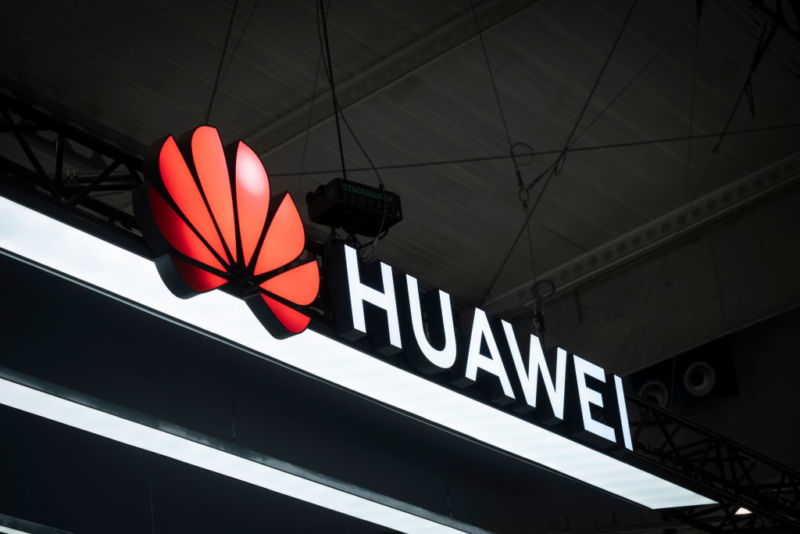Huawei expects a 20% drop in phone sales, thanks to lack of Google apps

Enlarge / Huawei's logo at the Smart City Expo World Congress in Barcelona in November 2019. (credit: Getty Images | SOPA Images)
Huawei is expected to be hit hard in the 2020 smartphone market thanks to the United States' export ban. After grabbing the #2 smartphone vendor spot in 2019, a new report from The Information (subscription required) claims Huawei expects to have a much rougher 2019, as the effects of the export ban really start to take hold. According to the report, Huawei expects to ship 190-200 million smartphones in 2020, which, compared to its 2019 shipments of 240 million, would be a 20-26 percent drop.
The export ban makes it illegal for US companies to provide Huawei with parts and services, cutting the company off from a significant part of the smartphone industry. Huawei's lack of access to US technology doesn't really affect its ability to make smartphone hardware. Huawei says it has been preparing for a ban like this and now regularly builds smartphones with zero US components, so 2020 should be business as usual. The US export ban mainly affects Huawei's access to smartphone software-the ban blocks the company from accessing Google's Android ecosystem including the Play Store and its millions of apps, Google Play Services, and killer Google apps like Gmail, Google Maps, Chrome, YouTube, the Google Assistant, and more. The ban also means Huawei can't carry US-made apps in its app store, like Facebook, WhatsApp, Instagram, Snapchat, Netflix, Uber, Lyft, Amazon, Twitter, and a ton of other apps.
China takes up 60 percent of Huawei's shipments, according to Counterpoint Research, and this large chunk of Huawei's business should be unaffected by the ban. Google doesn't do much business in China, so the lack of Google's ecosystem is a reality in China no matter what. Many of the top-tier US apps don't have much of a foothold in China either, thanks to a market preference for homegrown apps and stringent government-spying requirements for user data that keep out many US companies.
Read 2 remaining paragraphs | Comments